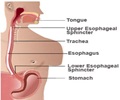Scientists at the University of Texas M. D. Anderson Cancer Center have identified 11 genotypes that may elevate the risk for oesophageal cancer.
Some of the major risk factors associated with oesophageal cancer include obesity, smoking and gastro-oesophageal reflux disease.While the risk factors are quite prevalent in the general population, the incidence rate of esophageal cancer is quite low, which means that only a small percentage of people are genetically predisposed to develop oesophageal cancer.
The researchers have identified 11 single-nucleotide polymorphisms (SNPs) in microRNA-related genes that showed at least a borderline significant association with oesophageal cancer.
A person can have one or more of these SNPs in their genetic makeup, putting him or her into low-risk, medium-risk and high-risk groups.
"We observed a significantly increased risk of oesophageal cancer with increasing numbers of risk genotypes," said Yuanqing Ye, Ph.D., an instructor in the Department of Epidemiology at the University of Texas M. D. Anderson Cancer Center.
In the study, it was found that each unfavourable genotype was associated with an increased cancer risk. Individuals with more than four unfavourable genotypes were more than three times as likely to develop oesophageal cancer.
Advertisement
Usually, most of the oesophageal cancer patients are diagnosed at an advanced stage with poor prognosis.
Advertisement
"Considering the dramatic increase in incidence, difficulty of early diagnosis, the poor survival rate for esophageal cancer, and the limited knowledge of the natural history of this tumor, we need a greater understanding of the etiology of esophageal cancer for improvement of diagnosis and hopefully a better prognosis," said Wu.
The study was published in the latest issue of Cancer Prevention Research, a journal of the American Association for Cancer Research.
Source-ANI
LIN














